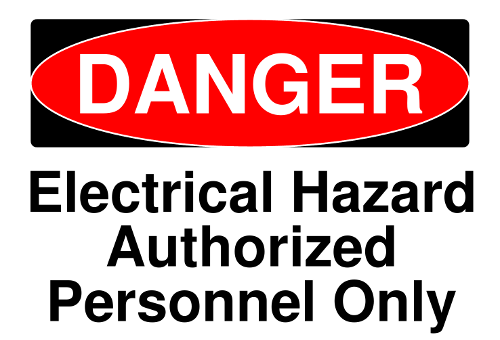How To Know When It's Time To Look For A New Job

Introduction
If you're unemployed, it's easy to know that you should be looking for a new job. But what if you already have a job? How do you know that it may be time to look for something new?
In some cases, the answer might be obvious. If your boss is abusive or if everyone around you is being laid off, it's almost certainly time to seek alternatives. However, in most cases, it's not that simple.
The average full-time employee in the United States puts in 47 hours of work each week1. Assuming that you sleep 8 hours each night (which is unlikely), this means that you spend 42% - almost half – of your waking hours at work. Spending that much time doing something you dislike isn't a healthy way to live.
Here are some clues that it's time to start looking.
Sunday Night Blues
Towards the end of the weekend, do you find yourself getting depressed or angry? If the thought of going to work on Monday morning ruins your weekend, it's time to seriously consider making a change.
Few people enjoy the thought of returning to work after the weekend. If you find that it's causing you physical or mental symptoms such as insomnia or depression, you should take this as a sign that the job is not the right fit for you.
Overworked
Has your workload increased with no end in sight? Perhaps business is booming (a good thing) and new people haven't been hired yet. Or perhaps there have been layoffs and your stuck doing the work of several people. The company is benefiting from your extra effort, but you may not be.
If you think this will be a temporary problem, then it's probably worth sticking around. Maybe there will be some type of long-term reward. However, if you suspect that this is the new “normal”, it may be time to look for alternatives.

Under Paid
We'd all like to make more money. If you think you're not being paid fairly for the value you add to the company, it may be time to start updating your resume. Before you do that, you should ask yourself some questions.
-
Do you believe that you're paid less than your skill and experience is worth or would you simply like more money?
-
If you quit right now, how much would the company have to pay your replacement?
-
Has your research shown that you would make more money doing the same job with the same level of experience at a different company?
-
Is there anything about your current job that makes up for a lower salary? In some cases, flexible hours, a short commute, autonomy, etc., can make up for a lack of compensation.
There's a chance that the money you're paid is reasonable for the job you do even though you think you're worth more. Maybe you can work with your manager to increase your responsibilities and your value to the company. If you're otherwise satisfied with the company, it doesn't hurt to ask before you consider leaving.
It's Not Like It Used To Be
Many work places change over time. For example, a new boss can make things stressful as he or she tries to make their mark. Merging with or getting acquired by another company can drastically change what you've grown used to.
If the changes that you're unhappy with have been gradual, it's unlikely that they'll change for the better any time soon. If they are intolerable, you owe it to yourself to make a change.
If the changes were sudden, it may be worth giving the new environment some time to settle down before jumping ship. Even though it may not seem like it at first, you may find that the changes turn out to be improvements.
No Room for Advancement
If you're no longer satisfied with your current position and see no way to advance any further with your current company, your only choice may be to move on. If you generally like your company, it may be worth approaching your manager to see if there's some way for you to advance your career without leaving. Your manager likely knows more about the direction the company is headed and may be aware of opportunities that haven't yet been made known to everyone else.
Your Input Is Ignored
If you find that your input is no longer sought out or is ignored, it may be time to look for another job. If you have a good working relationship with your manager, you may be able to find out what has changed. Perhaps you can do something to repair the damage, or you may just decide to move on.

Unsafe Conditions
Some jobs are inherently dangerous. They may involve tools, chemicals, heights, heat, or other things that can cause hazardous conditions. Most companies follow established safety procedures and rules to minimize the risk to their employees. In many cases, there are laws that require this.
If you find that your company allows or encourages short-cuts that increase the risk of accidents and injuries, you need to find another job now. It's very unlikely that the pay they offer is worth the potential harm caused by their lax attitude toward safety.
Abuse
If you have been abused or harassed or have witnessed abuse or harassment, it's time to leave that job. This can include bullying, sexual harassment, and other illegal or immoral actions. There's no excuse for this type of behavior in any professional environment. In addition to seeking a new job, you may also want to consult with an attorney who specializes in labor and employment law.
You've Withdrawn
If your job situation has caused you to withdraw from activities you normally enjoy or to question your value as an employee or a person, it's time to look for alternatives. Staying in a job that leaves you feeling helpless or hopeless is unfair to you and your family.
Your Attitude has Changed
You may have recently developed one or more of these attitude problems:
-
You dread the thought of going to work each day.
-
You consider taking a sick day for any (or no) reason.
-
You spend more time complaining than working.
-
You can't see the positive side of anything related to your job.
-
You no longer care about the quality of your work.
If you regularly experience any of these issues, you may have already waited too long to change jobs.
It's also possible that the problem may not be your job; the problem may be you. If that's the case, changing your job may help for a while, but you may just bring your issues with you to your next employer. You may want to take a hard look at yourself before making any major changes.
Have you ever quit a job because of boredom?
You're Bored
I left a job once because of boredom. I felt that even if I did everything perfectly, the results didn't really matter to anyone other than me. That prevented any sense of accomplishment.
I left that job for one with the same pay, longer hours, and much higher pressure, and was very happy with the decision.
If You Decide To Leave
If you do, in fact, decide that it's time to find a new job, here are a few suggestions on how to proceed.
-
Unless there's a safety concern, don't quit your job until you have a new one already lined up. Knowing that the end is in sight should reduce daily stress, and still having a paycheck relieves some of the pressure of your job search. Plus, rightly or wrongly, you're considered to be more employable if you're currently employed.
-
As long as you continue to accept a paycheck from your current employer, you should continue to do your job as is expected of you. That's the professional, mature, and moral thing to do.
-
Stay professional; no matter how unhappy you are with your old job, don't burn any bridges on your way out the door. The business world is small and a bad reputation can come back to haunt you.
Conclusion
We spend far too many of our waking hours at our jobs. Working at a job or for a company that you actively dislike is unhealthy for your mind and body. There are many other possibilities out there, although you may have to work hard and take some chances to find them. In the end, spending your work day doing something you find satisfying is worth it.
Related Information
Steps To Take To Become A Good Employee
Being a good employee will help increase your value and opportunities within your company and help you survive tough economic times.
Improve Your Job By Improving Your Relationship With Your Boss
Building a positive, supportive relationship with your boss will improve your current job and your future career.
© 2014 Ron Bergeron








